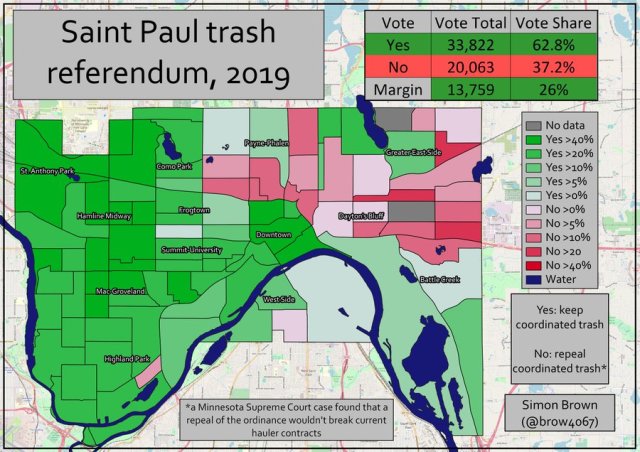Back in the day when Christianity was a part of the public school system our students achieved and had a balance of knowledge, morality and both of which help to understand who God is. God is the source of knowledge. Since 1962 & 1963 when Prayer and Bible Study was taken from public schools respectively our students achievements have taken a nose dive. Student & Teachers moral values are scattered widely. Perhaps to help make all students achieve to the extent of their God given talents and to help them live fulfilling lives free of moral problems we should welcome Judeo-Christian values and teaching back to public schools.
The article below is from the website MyFaithVotes.org it is from a three part series about school board elections. It was posted on October 26, 2017. We’ve not changed it. ~~Publius Jr
Article 2 of 3. [My Faith Votes] created this 3-part series on school boards elections to address some critical issues that every voter should consider in their local school board election.
Should School Choice matter to Christians?
There seems to be a giant wall of division between those who defend the current state of education (anchored by the teachers union) and those who believe in school choice, by way of vouchers, special programs, and educational savings accounts. As people of faith, should we take a position on school choice?
This is an issue that many believe is too complicated, better left to the educational experts and our government officials to solve. Yet, it’s an issue that gambles with the future of our children. And more importantly, it’s one that scripture speaks to clearly. In fact, at the core this is not a political issue – it’s a Biblical one.
School choice should matter to Christians for three primary reasons.
1. Choice Matters Because Parents Are Best Equipped to Care for their Children.
Nobody knows what a student needs to thrive educationally better than the student’s parents. A government or institution cannot possibly care for children in the same way that a father and/or mother can. We witness a great decline of society when we substitute the judgment of “experts” and bureaucratic systems for the judgment of parents.
Children are entrusted to parents as a gift from God. Psalms 127:3, “Children are a gift from the LORD; they are a reward from him.” A gift that comes with great responsibility.
Proverbs 22:6: “Train up a child in the way he should go, and when he is old he will not depart from it.”
Deuteronomy 6:6-7: “And these words that I command you today shall be on your heart. You shall teach them diligently to your children, and shall talk of them when you sit in your house, and when you walk by the way, and when you lie down, and when you rise.”
3 John 1:4: “I have no greater joy than to hear that my children are walking in the truth.”
When parents can’t afford to live in a “good” school district, or don’t have the means to private school or homeschool, and are told where their children must attend school, based solely on their zip code, their freedom to educate their children as they see best is restricted. Their parental authority is compromised.
“We’ve allowed ourselves, as parents, to be bumped from the ‘table.’ We’ve allowed policy makers, school administrators, and self-interested teachers’ unions to decide what’s best for our children. This needs to change.” – Pastor Jim Garlow (Well Versed, page 78).
2. Choice Matters Because Every Child is Unique.
We know from both research and common sense that every child is different and unique, created by God (Jeremiah 1:5). Cookie-cutter factory models don’t work for every child.
In recent decades there has been some movement towards school choice as a few states have begun to slightly crack the door open for limited educational freedom through the allowing of charter schools.
These charter schools give us a glimpse of what education would look like in a free market educational system.
These are schools that are often differentiated by their special emphasis in areas such as the arts, mathematics and the sciences, classical learning, technology, and a hands-on educational model approach.
In most traditional public school environments students are expected to learn at a pre-determined pace, mass-educated, moved along through the system according to standardized tests and curriculum. For many parents whose children have special needs or special giftings and talents there are no other educational options. As one of the most advanced societies in the world, we should be doing better. It should stir us to know that our educational system is rooted in socialistic and communistic ideals rather than innovative free market ideals where opportunity abounds, choice is the currency and prosperity is the result.
One more note: This is no reflection on the incredible teachers who have dedicated their lives to helping our children learn. Rather, it is an example of a broken educational system in America.
3. School Choice Empowers the Underprivileged
Here are the facts:
- 50.7 Million students attended public elementary and secondary schools in the fall of 2017 (NCES)
- Of those attending public schools, roughly 2.5 Million students attend charter schools in the United States (Business Insider)
- Experts estimate that around 3.5 Million students are homeschooled in the United States (Business Insider)
- 4.5 Million students attend private elementary and secondary schools (ONPE 2014 survey)
The bottom line, the vast majority of students in America receive a public school education. It’s reasonable to assume that many did not have a say in the matter because they lacked the economic means to live in a “good” public school district, to attend a private school, or to be homeschooled. Nor were they lucky enough to win a lottery to attend a charter school.
This is educational discrimination and it is simply not fair. This is un-American in every way.
Pastor Jim Garlow in his book Well Versed said it best,
“We have an educational system that discriminates against the single mother and the poor, by limiting options. It’s a system that allows wealth to determine a child’s education. If you are fortunate enough to buy a home in a good school district, your child has a better chance of receiving a strong education.
“However, if you cannot afford to live in a good district or pay for a private school, you have no choice but to send your child to the school located in your neighborhood, even if it’s a poor performing school.” (Well Versed, page 77).
Educational Choice is just one way of extending care and compassion for the less fortunate. (1 John 3:17, Philippians 2:4, Deuteronomy 15:11).
If we as Christians believe all people are equal in the sight of God and should be afforded the same freedoms regardless of economic status, then it is our responsibility to care about the education of all people, regardless of their zip code. It is our responsibility to do what we can go give all families a choice in where they educate their children.
Thanks for reading part two of our education series! If you missed it, read last week’s article, “Why Should You Care about Your Local School Board.”













 Despite a crushing defeat delivered to Democrats across the country on Election Day, the Democratic analyst sitting next to me at the local Fox television studio here in Orlando, Florida, who once worked as an upper-level staffer for outgoing Rep. Alan Grayson, remained hopeful and optimistic – actually, giddy might be a more accurate description. Another Democratic strategist, also in studio, was visibly upset by the election results but was determined to get right back into the fight. Why? Some local races were going their way.
Despite a crushing defeat delivered to Democrats across the country on Election Day, the Democratic analyst sitting next to me at the local Fox television studio here in Orlando, Florida, who once worked as an upper-level staffer for outgoing Rep. Alan Grayson, remained hopeful and optimistic – actually, giddy might be a more accurate description. Another Democratic strategist, also in studio, was visibly upset by the election results but was determined to get right back into the fight. Why? Some local races were going their way.